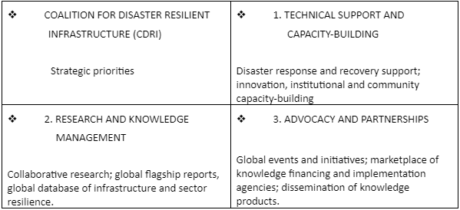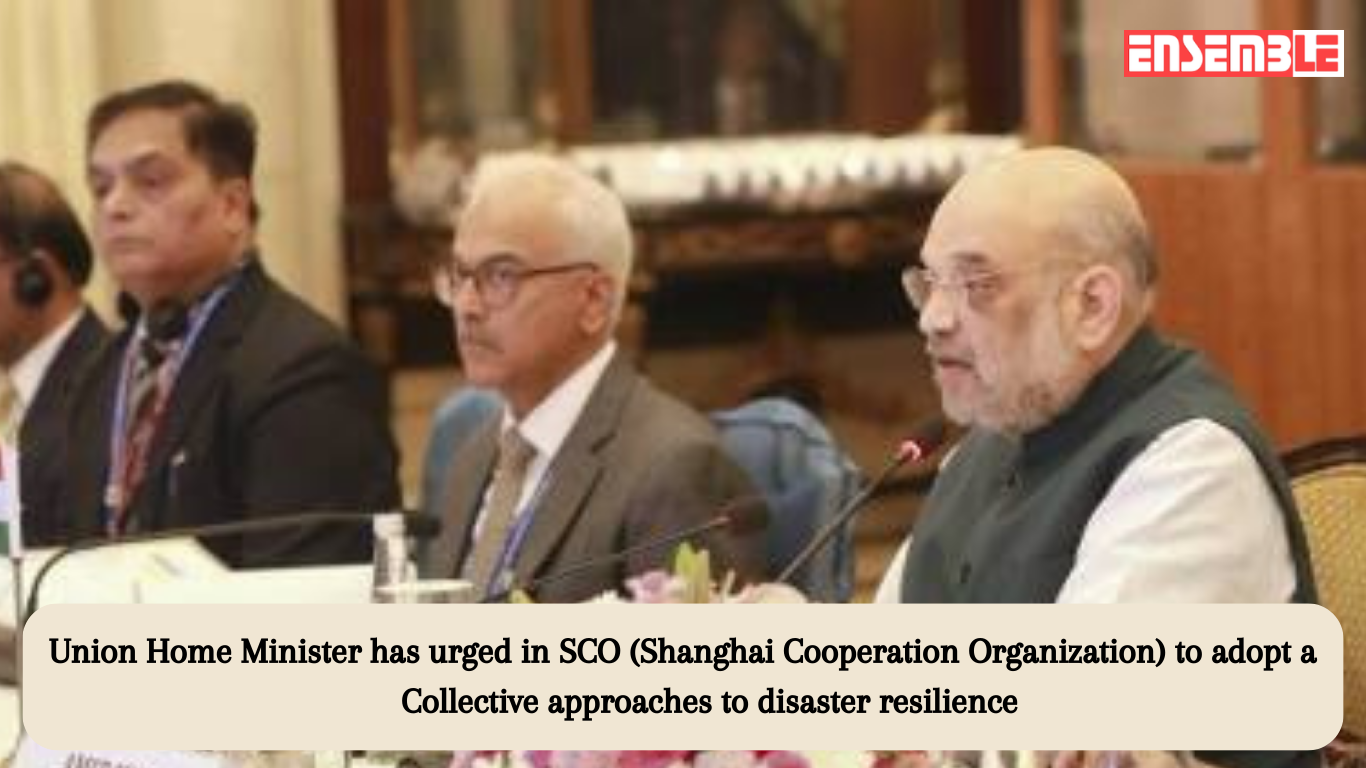Why In News?
– India has organized two knowledge sharing workshops for SCO members on mitigating the impacts of earthquake and flood.
– India’s Home Minister was chairing a meeting on prevention and elimination of emergency situation.
– The minister identified 5 major area to work on–
-Confidence building efforts.
-Collective responsibility approaches.
-Expanding cooperation in communication and information sharing.
-Identification of priority areas.
-Use of newly developed technology in disaster resilience capacity building.
-India has developed more accurate and timely early warning system for droughts, flood, lightening, heat
waves, cold waves and cyclone.
-India lead Coalition for Disaster Resilient Infrastructure (CDRI) has 39 members from across the world.
– India has developed more accurate and timely early warning system for droughts, flood, lightening, heat waves,
cold waves and cyclone.
– India lead Coalition for Disaster Resilient Infrastructure (CDRI) has 39 members from across the world.
About SCO
– It is an intergovernmental organization founded in Shanghai on 15th June 2001.
– SCO currently comprises of 8 members state- China, India, Kazakhstan, Kyrgyzstan, Russia, Pakistan, Tajikistan
and Uzbekistan.
– Four observer state are Afghanistan, Belarus, Iran, Mongolia.
– Six dialogue partners- Armenia, Azerbaijan, Cambodia, Nepal, Sri Lanka and Turkey.
– The 8 nations of SCO representing 42% of global population, 25% of global GDP and 22% of world’s total land area.
– Headquarter situated at Beijing.
– The SCO is governed by Head of State Council (HSC), it is supreme decision-making body, which meets once a year.
– India as member since 2017.
– The SCO is primarily centre cooperation on security, military activities, economic cooperation, cultural
cooperation.

About CDRI-India’s approach on disaster risk management
– It is an international coalition of countries, United Nations Agencies, multi-lateral development banks, private
sector and academic institution.
– It was launched by the Indian Prime Minister at the 2019 United Climate Action Summit.
– It consists of 39 members. Out of them 31 National Governments and 8 organizations.
– Secretariat situated in New Delhi, India.
– Promote the resilience of new and existing infrastructure system to climate and disaster risks, thereby ensuring
sustainable development.
– Aim to impart assistance the country for the adoption of infrastructure strategy and risk informed infrastructure
investment to strengthen the resilience of community and states.






